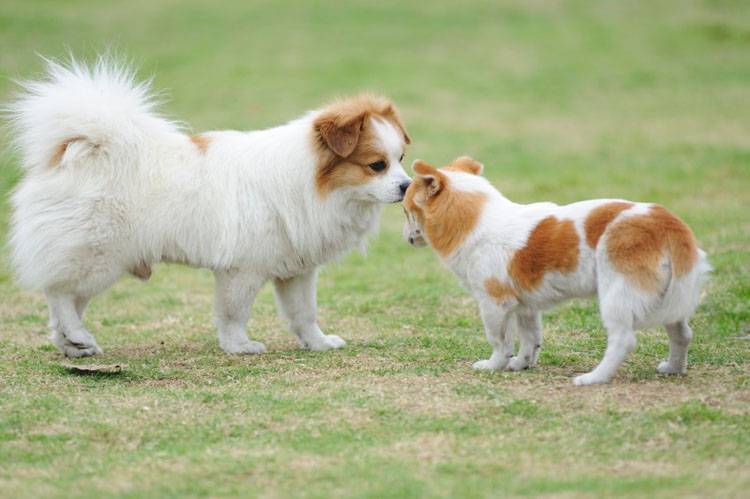Understanding Why Dogs Hump
Misconceptions About Dogs Who Hump
It’s easy to feel embarrassed when you take your dog to the park or a play date and all he wants to do is hump other dogs. Many neutered dogs will still hump, which often perplexes the owner. People assume their dogs display this behavior out of sexual arousal or to claim dominance. However, those reasons do not always hold true and the good news is the behavior can be stopped with a little training.
How to Get a Dog to Stop Humping
Don’t Punish a Dog Who Gives Warnings
Most dogs don’t like being mounted by another and will usually communicate that by snapping and barking at the offending dog. This is a warning signal: The dog is letting the other know his behavior is not okay and, if he is further provoked, he might bite.
If your dog is the one being mounted and he gives these warning signals, do not punish him. This is good canine communication because he is giving a warning. If warning signals are punished, your dog could learn to suppress them and go straight for the bite next time.
RELATED: Knowing When a Dog Might Act Aggressively
Let Him Back Away
If your dog is the one doing the mounting, observe his behavior after the other dog tells him to back off. If he immediately stops and backs away, this is ideal. This means he’s not trying to claim his dominance over the other dog. If he was, chances are a fight would have broken out. Since he immediately backed away, it most likely means he does not understand appropriate play. Being snapped at for this behavior will teach the dog not to perform it.
Use a Recall Command
You can help your dog understand that humping is not appropriate behavior by teaching him the recall command. To begin teaching your dog to come to you on command, work with him in a low distraction area with no other dogs around.
Keep him on a long leash and have extra tasty treats on you. Say your dog’s name followed by “Come!” or “Here!” If he doesn’t immediately run to you, you can reel him in with the long line. When he gets to you, give him tasty treats and keep his focus by practicing a “sit” or “down.”
Make Recall More Rewarding
After you practice this many times and your dog immediately runs to you nine out of 10 times, introduce another dog to the area, but keep yours on the long line. The goal is to make this cue more rewarding for him than humping the other dog. If you keep your dog focused on you for long enough, he will be less likely to run right back to the dog to try humping her again.
Let Him Play and Test Him
After many successful responses to the command, you can try letting him play without having the long line attached. If he doesn’t respond to the command, take him away from the other dog for a minute to practice some basic commands. If you need help with training the recall cue, contact your local dog trainer.
Keep a Close Eye on Your Dog
The key is to watch your dog’s body language while he plays with other dogs. You’ll be able to tell when he’s about to mount another dog, which serves as your cue to call him over to you. After consistent practice, your dog will learn that mounting causes problems and listening to you is rewarding.
READ MORE: Dealing With Separation Anxiety in Dogs





